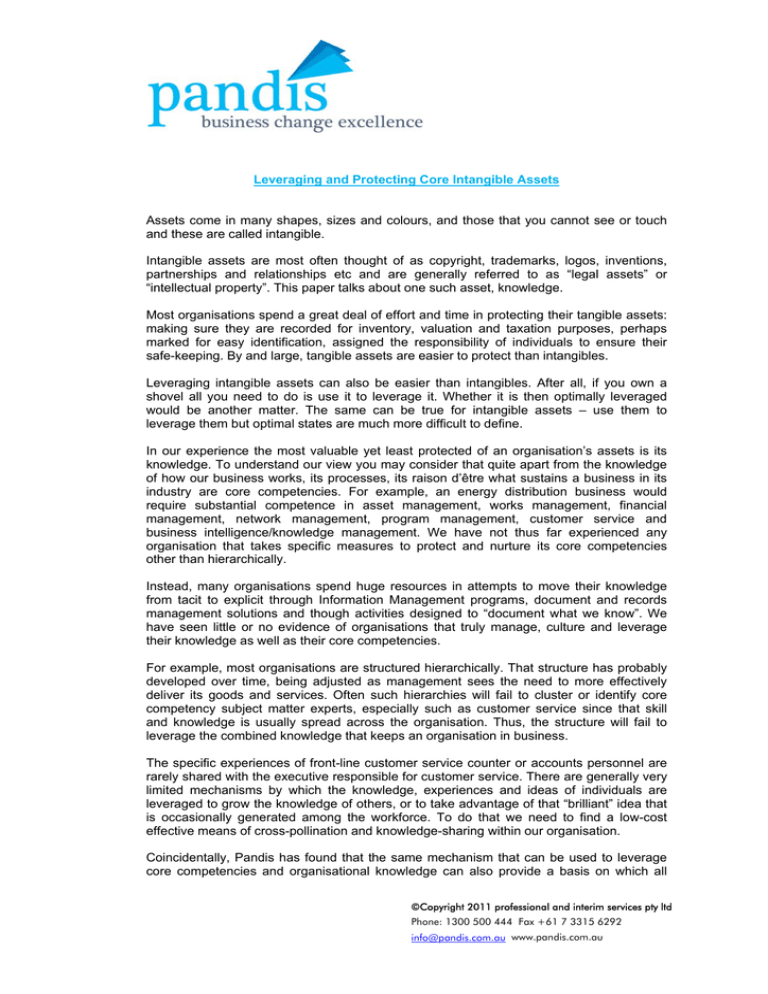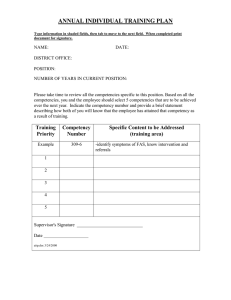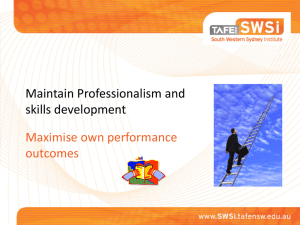Leveraging and Protecting Core Intangible Assets Assets come in
advertisement

Leveraging and Protecting Core Intangible Assets Assets come in many shapes, sizes and colours, and those that you cannot see or touch and these are called intangible. Intangible assets are most often thought of as copyright, trademarks, logos, inventions, partnerships and relationships etc and are generally referred to as “legal assets” or “intellectual property”. This paper talks about one such asset, knowledge. Most organisations spend a great deal of effort and time in protecting their tangible assets: making sure they are recorded for inventory, valuation and taxation purposes, perhaps marked for easy identification, assigned the responsibility of individuals to ensure their safe-keeping. By and large, tangible assets are easier to protect than intangibles. Leveraging intangible assets can also be easier than intangibles. After all, if you own a shovel all you need to do is use it to leverage it. Whether it is then optimally leveraged would be another matter. The same can be true for intangible assets – use them to leverage them but optimal states are much more difficult to define. In our experience the most valuable yet least protected of an organisation’s assets is its knowledge. To understand our view you may consider that quite apart from the knowledge of how our business works, its processes, its raison d’être what sustains a business in its industry are core competencies. For example, an energy distribution business would require substantial competence in asset management, works management, financial management, network management, program management, customer service and business intelligence/knowledge management. We have not thus far experienced any organisation that takes specific measures to protect and nurture its core competencies other than hierarchically. Instead, many organisations spend huge resources in attempts to move their knowledge from tacit to explicit through Information Management programs, document and records management solutions and though activities designed to “document what we know”. We have seen little or no evidence of organisations that truly manage, culture and leverage their knowledge as well as their core competencies. For example, most organisations are structured hierarchically. That structure has probably developed over time, being adjusted as management sees the need to more effectively deliver its goods and services. Often such hierarchies will fail to cluster or identify core competency subject matter experts, especially such as customer service since that skill and knowledge is usually spread across the organisation. Thus, the structure will fail to leverage the combined knowledge that keeps an organisation in business. The specific experiences of front-line customer service counter or accounts personnel are rarely shared with the executive responsible for customer service. There are generally very limited mechanisms by which the knowledge, experiences and ideas of individuals are leveraged to grow the knowledge of others, or to take advantage of that “brilliant” idea that is occasionally generated among the workforce. To do that we need to find a low-cost effective means of cross-pollination and knowledge-sharing within our organisation. Coincidentally, Pandis has found that the same mechanism that can be used to leverage core competencies and organisational knowledge can also provide a basis on which all ©Copyright 2011 professional and interim services pty ltd Phone: 1300 500 444 Fax +61 7 3315 6292 info@pandis.com.au www.pandis.com.au stores of technical knowledge can be shared across competency domains, enriching the business understanding of all subject matter experts and creating versatile individuals that can “sit astride” multiple core competency domains. Such individuals then become the champions for change, conveniently located at the lower levels of the hierarchy but able to influence the executive and contribute to strategic thought leadership. If you would like further information on how to protect, nurture and leverage your business’ core competencies just contact Ken Garrard from Pandis on 0407 703 676. ©Copyright 2011, professional and interim services pty ltd Page 2



